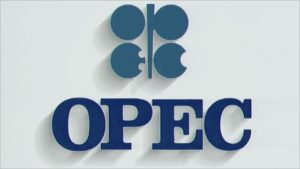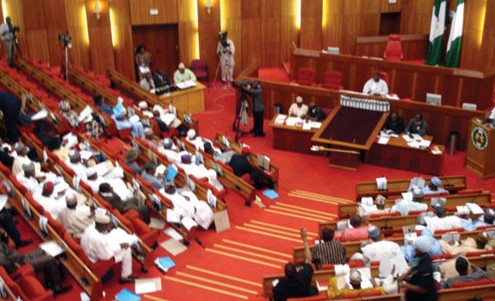
Brent oil rose above $77 a barrel for the first time since 2018 after OPEC+ failed to reach an agreement on bringing back curtailed output.
According to Bloomberg, oil jumped to the highest in more than six years after a bitter fight between Saudi Arabia and the United Arab Emirates plunged OPEC+ into crisis and blocked a supply increase.
But the ensuing drama has continued to be a blessing in disguise as it has continued to put pressures on the finances of Nigeria.
This is because of the inability of President Muhammadu Buhari’s government to find an appropriate price for petrol and the subsequent continuation of the subsidy scheme.
The nation’s oil company, Nigerian National Petroleum Corporation (NNPC) is currently the sole, official importer of petroleum products into the country.
While its landing price was recently put at about N256 per litre, petrol sells for N162 to N165 in most parts of Lagos.
The present rise in oil price, though, more revenue to the country, but would mean government, scared of negative reaction from labour, would not think of stopping the subsidy payment.
In March 2020, the Federal Government said it would allow market forces to dictate the pump price of petrol.
But after oil prices rose in the preceding months, the Federal Government decided not to adjust the price correspondingly under pressure from organised labour.
Explaining government’s dilemma, Managing Director of NNPC Mele Kyari, recently said:
“The reality is that we cannot afford it,”
“But also the second reality is if you don’t do something smart, you could end up throwing prices at Nigerians that are well above prices that they should pay for.”
Speaking on Channels Television last week, the NNPC chief said the government is still engaging with organised labour and other stakeholders on how to properly price the product.
“The engagement is aimed at making sure there is a reasonable level of pricing that we can do that will recover the cost,” he said.
However, West Texas Intermediate crude advanced to $76.98 a barrel, the highest since November 2014, as the breakdown in cartel talks left the market without the extra supplies for next month it had been counting on.
What happens next will determine whether the standoff could escalate into a conflict as destructive as last year’s price war.
At stake is the stability of the global economic recovery amid growing inflationary pressures, and the ability of the producers’ alliance to retain its hard-won control over the oil market.
From international oil majors to Middle Eastern petrostates, the market will be watching keenly in the coming days as Riyadh and Abu Dhabi publish prices and negotiate volumes for their August crude supplies. The fear that events could spiral further out of control was evident, and the U.S. called for a compromise.
“We do not want a price war,” said Iraq’s Oil Minister Ihsan Abdul Jabbar. “And we do not want oil prices to rise to more than the current levels.”
Meeting Abandoned
After several days of tense talks, the Organization of Petroleum Exporting Countries and its allies abandoned their Monday meeting. A disagreement over how to measure production cuts upended a tentative deal to boost output and swiftly devolved into an unusually personal and public spat between Saudi Arabia and the UAE.
The last time those two countries clashed over oil policy, in December 2020, the UAE floated the idea of leaving the cartel. That dispute ended in a truce, but the breakdown in negotiations this time around was so severe that the group couldn’t even agree on a date for its next meeting.
The immediate consequence of the collapse in talks is that the output hike expected for August won’t take place, leaving the market short of barrels just as the global economy recovers from the Covid-19 pandemic.
“With the oil market already in deficit and supply growth lagging oil demand growth,” the continuation of existing OPEC+ production limits is likely to send prices higher, said Giovanni Staunovo, a commodities analyst at UBS Group AG.
Over the medium term, the split could potentially have the opposite effect, bringing lower prices as countries jockey for position and start pumping more. The probability of this is low, Staunovo said.
Consumer Pressure
Major consumers were paying attention to the cartel’s failure. Within hours, the administration of U.S President Joe Biden urged the group to get its act together.
The White House is “closely monitoring the OPEC+ negotiations and their impact on the global economic recovery,” a spokesperson said. “Administration officials have been engaged with relevant capitals to urge a compromise solution that will allow proposed production increases to move forward.”
In this regard, the Americans may find allies within the cartel.
Bloomberg’Energy Editor:
Carlos Caminada, Bloomberg’s energy editor for the Americas, discusses the latest on OPEC+ with Doug Krizner and Paul Allen on Bloomberg Daybreak Asia.
OPEC+ has already been reviving some of the crude supplies it halted last year in the initial stages of the pandemic. The 23-nation coalition decided to add about 2 million barrels a day to the market from May to July, and the question before ministers on Monday was whether to keep going in the coming months.
The cartel’s own data show that once-bloated oil inventories are back down to average levels as the recovery in fuel consumption continues. Demand in the second half will be 5 million barrels a day higher than in the first six months of the year, OPEC Secretary-General Mohammad Barkindo said last week.
The main proponent for opening the taps has been Russia. Its companies are keen to boost output, while rising domestic gasoline prices are an issue of growing importance before the parliamentary elections in September.
Moscow’s failure to secure its desired production increase was a rare setback for Deputy Prime Minister Alexander Novak, one of the architects of the OPEC+ alliance. He made no public comment after the cancellation of Monday’s meeting, but has every incentive to continue working behind the scenes to find a resolution.
Iraq’s oil minister said he hopes to “witness a date” within the next 10 days for another OPEC+ meeting, which should be able to reach a deal that satisfies everyone. In the meantime, he expects members will continue to honor their existing production quotas, and said the impact on prices will be temporary.
“The market was expecting a small addition in the coming months, the delay in the agreement led to this slight rise in oil prices,” Jabbar said in a phone interview. “Prices may come down if OPEC agrees to raise exports.”
In all of these, some analysts in Nigeria see precarious situations in the economy.
This is because the welfarist posture envisaged by the federal government in the retention of the subsidy payment has not achieved its aim after all as the poor are getting poorer due essentially to the fact that the Petroleum products are being smuggled out of the country’s porous borders to neigbouring countries and sold at higher prices.
Also, it is the rich who have fleet of cars that are actually benefitting from the said subsidy as they are the ones with wherewithal to buy the fuel.
This is aside from the alleged massive corruption in the payment of subsidy allegedly believed to be shrouded in secrecy.













